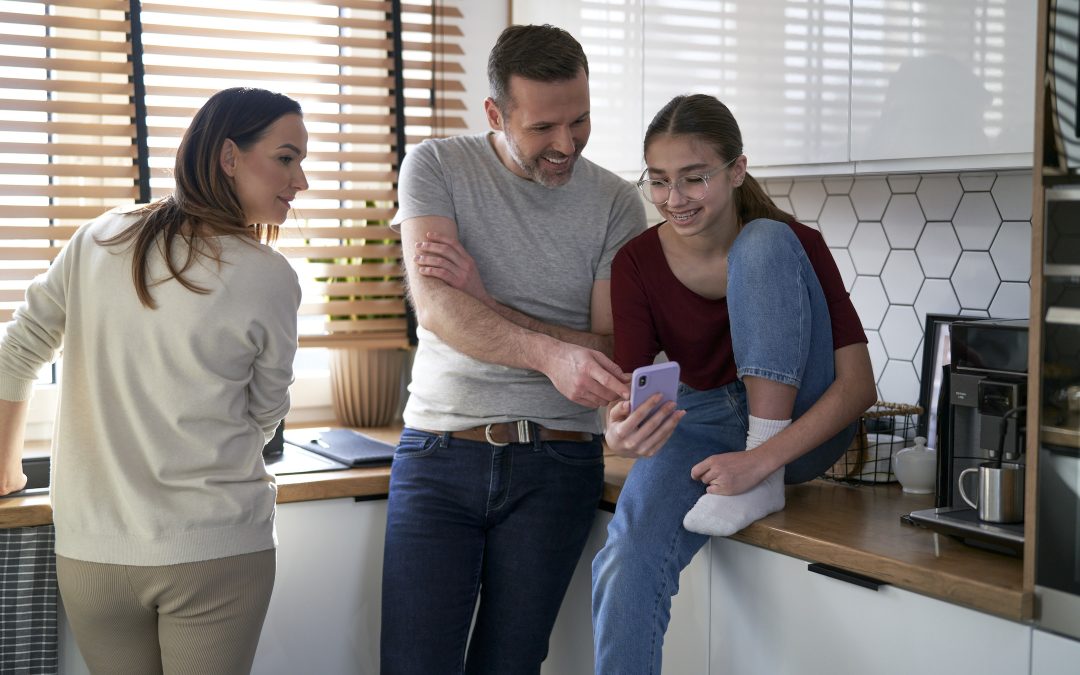This month’s risk factor is so important. I would even argue that it is perhaps the most influential risk factor that we have ever discussed in these posts. This risk factor has to do with more than just behavior and parenting, this risk factor has to do with our instincts as human beings. This month we are going to be discussing the risk factor of favorable parental attitudes and involvement.
As a parenting class facilitator, I have sat with countless parents over the years and discussed parenting strategies and styles, and inevitably we always start to discuss our own childhood and adolescent upbringing. I have sat with countless mothers who are struggling with addiction, and so many of them tell me the same thing, my parents gave me my first _________. You can fill in the blank.. Whether it was cigarettes, alcohol, methamphetamine, or prescription medication. You name it and I’ve probably heard it. Every time this leads us into a discussion about how this contributed to their substance use issues.
When a child is born they have to rely on their parents for their every need. For most children they quickly realize that they need their parent and/or caretaker in order to survive. As the child grows older they may start to depend on their parents or caregivers less and less, but one thing remains the same. That is the mentality that the parent is the one who is going to take care of them and help them survive. So, when a parent offers their child a cigarette, most likely a child isn’t going to stop and question if it is safe to smoke a cigarette. They automatically believe that if their parent is giving it to them, then it is safe and acceptable behavior. This child now has a new norm. The norm is that it is okay to smoke cigarettes, and now when their friend offers them one after school they will most likely take it because their parent said it was okay.
This risk factor is tied so closely with so many of the other risk factors we have talked about like adequate adult supervision, ease of access to substances, clear established parental expectations, and even favorable attitudes towards substances. When a parent or caretaker provides substances or uses substances with their child the child is much more likely to develop substance use disorder in the future. As parents, we cannot deny the influence we have on our children and the decisions they make.
In March 2024, we held a Focus Group with Junior High Students in Poplar Bluff. We talked specifically about vaping and e-cigarettes. There were so many of these students who told me that the way youth obtained the e-cigarettes was from their parents. When I asked them why, they said that parents were afraid that if they didn’t purchase these products for their children, their children would obtain them off the street and may consequently come into contact with more harmful substances such as fentanyl. As a parent, I get it. I think it is important that we recognize and address what is really going on with our children, instead of making a habit of turning our heads and looking the other way. I applaud these parents for recognizing the fact that their child is using substances, and are most likely addicted to nicotine. These youth most likely aren’t going to stop using, unless we intervene with some type of course correction. I also completely understand that the idea of fentanyl or THC vapes is scary and parents feel better knowing their child is just using nicotine products. They’re right! No substance use is safe for youth, however THC vapes and Fentanyl pose a life altering and even life threatening risk to our kids.
If you are a parent in this situation, I just want you to know that I see you, and I empathize with the position you are in. I would like to encourage parents to think about other ways we can help our youth, without providing them with substances. If you’re child is addicted to nicotine through e-cigarette use, could you talk with their pediatrician about medication to help them stop using? Would it be possible to purchase them something to help them quit such as a nicotine gum or patches? Is there a local Youth Cessation course they could take? Could you work with your child to develop a quit plan and offer them an incentive for quitting. I’ve also heard parents say that their child uses marijuana to help cope with the side effects of mental health issues. If you are a parent in this situation, I encourage you, please do your research. Research the different types of marijuana products, their THC content and their effects on a developing brain. Do some research on cannabis use disorder. Please understand when I say this, I am in no way saying there are not a time and place for various substances in life, but I do encourage you to be informed. Do your research. Work with your child to come up with the most healthy and sustainable way to deal with any issues they are facing.
When we work with youth, I always tell them that you can’t get a brain transplant. The brain your child has now is the one they will need to use for the rest of their life, and we cannot deny the fact that substances do have a major effect on the way the brain works and functions. As parents, we know that life can be very difficult and I encourage you to help your child find ways to cope with these difficulties that don’t involve substance use

